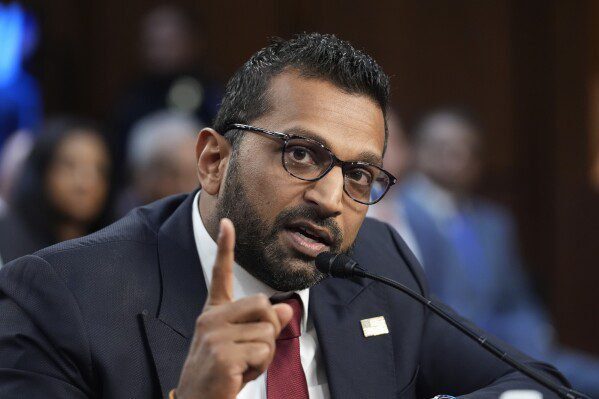Kash Patel has officially been confirmed as the Director of the Federal Bureau of Investigation following a closely contested Senate vote. The confirmation, which took place on February 20, 2025, concluded with a narrow 51-49 majority, with Republican Senators Lisa Murkowski and Susan Collins joining Democrats in opposition. Patel’s appointment has sparked significant debate, given his longstanding association with former President Donald Trump and his past criticisms of the FBI’s operations.
A Controversial Nomination Process
Patel’s nomination faced strong resistance from both political and law enforcement circles. A group of twenty-three former Republican officials publicly voiced their concerns in a formal letter, warning that his leadership could compromise the agency’s integrity. They expressed fears that Patel, who has been a vocal critic of the FBI, could use his new position to advance political interests rather than uphold the bureau’s traditional mission of impartial law enforcement.
His nomination also ignited broader discussions regarding the politicization of federal agencies. Many critics pointed to his involvement in promoting narratives surrounding the “deep state” and unfounded claims regarding the January 6 Capitol attack as reasons for concern over his impartiality.
Patel’s Background and Policy Approach
Kash Patel, a former intelligence and national security official, has had a varied career spanning roles at the Department of Defense and the National Security Council. He played a key role in the Trump administration’s efforts to challenge the results of the 2020 presidential election and has been an outspoken critic of what he describes as institutional corruption within the FBI.
During his confirmation hearings, Patel pledged to restore public trust in the FBI and refocus its priorities on national security threats and law enforcement. He emphasized his commitment to transparency and accountability, promising internal reforms to prevent political bias within the agency. However, critics remain skeptical, fearing that his leadership may further erode the FBI’s independence and credibility.
Implications for Law Enforcement and National Security
With Patel now at the helm, analysts expect a significant shift in FBI policies and priorities. His leadership is likely to influence major areas such as counterterrorism, cybersecurity, and domestic surveillance. Given his past statements, many anticipate a stronger emphasis on investigating government overreach and revisiting previous cases that he claims were handled with political bias.
The impact of his tenure will be closely monitored by both domestic and international stakeholders. The FBI plays a critical role in intelligence sharing and counterterrorism cooperation with global partners, and Patel’s approach to these responsibilities could have broader geopolitical ramifications.
Political and Public Reactions
The confirmation of Patel has drawn mixed reactions across political lines. Supporters argue that his leadership will bring much-needed reform and accountability to the FBI, countering what they perceive as excessive bureaucratic overreach. Critics, however, warn that his appointment could set a dangerous precedent by aligning federal law enforcement with partisan interests.
Prominent Democratic lawmakers have already indicated that they will closely scrutinize his actions and hold him accountable for any perceived misuse of power. Legal experts suggest that his tenure may also lead to increased congressional oversight and possible legal challenges if controversial policy changes are implemented.
The Road Ahead for the FBI Under Patel’s Leadership
As Patel assumes his role, the FBI enters a period of transition marked by heightened scrutiny and debate. His ability to navigate the challenges of leadership while maintaining the agency’s core mission will be a critical factor in determining the long-term effects of his appointment.
The coming months will reveal how Patel’s leadership shapes the bureau’s operations and whether his policies reinforce or undermine public confidence in federal law enforcement. As the debate continues, all eyes remain on the FBI’s future under its new director.


